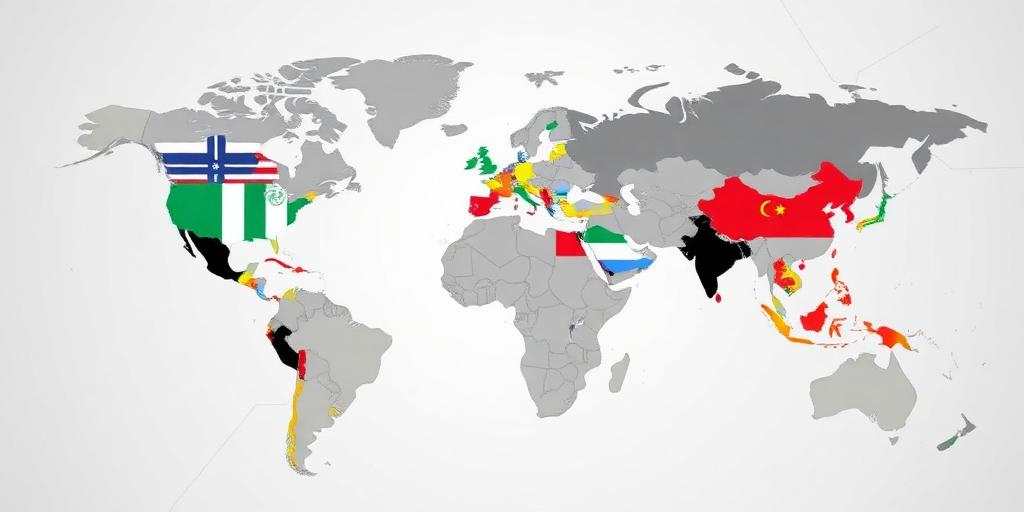Understanding Failed States Through a Geopolitical Lens
A failed state, a term frequently encountered in geopolitical discussions, refers to a country where the government is no longer able to perform its basic functions. These functions include maintaining law and order, providing essential services, and protecting its borders. The causes and consequences of state failure are complex and multifaceted, often rooted in a combination of political, economic, social, and environmental factors.
Defining a Failed State
Several characteristics commonly define a failed state:
- Loss of Control: The government loses control over its territory and population.
- Erosion of Authority: Legitimate authority is eroded, often leading to corruption and impunity.
- Inability to Provide Services: Basic services like healthcare, education, and sanitation are no longer adequately provided.
- Widespread Corruption: Corruption becomes endemic, undermining the rule of law and public trust.
- Economic Collapse: The economy deteriorates, leading to widespread poverty and unemployment.
- Internal Conflict: Civil unrest, insurgency, and armed conflict become prevalent.
- Forced Migration: Large-scale displacement of people due to violence and instability.
Geopolitical Factors Contributing to State Failure
Geopolitical factors play a significant role in the emergence and trajectory of failed states. Some key factors include:
- Colonial Legacy: The arbitrary drawing of borders by colonial powers often created states with diverse and conflicting ethnic, religious, and linguistic groups. This can lead to internal divisions and conflicts.
- Resource Curse: Countries rich in natural resources, such as oil or minerals, may experience the "resource curse." This occurs when the exploitation of these resources leads to corruption, inequality, and conflict, weakening the state.
- External Interference: Foreign powers may interfere in the internal affairs of a state, either directly through military intervention or indirectly through support for rebel groups or political factions. This can destabilize the state and exacerbate existing tensions.
- Geostrategic Competition: States located in strategically important regions may become pawns in geopolitical competition between major powers. This can lead to proxy wars and other forms of destabilization.
- Climate Change: Climate change can exacerbate existing vulnerabilities and contribute to state failure. For example, drought and desertification can lead to food insecurity and migration, increasing social tensions and undermining state authority.
Consequences of State Failure
The consequences of state failure are far-reaching and can have significant regional and global implications:
- Humanitarian Crisis: State failure often leads to humanitarian crises, with widespread displacement, food insecurity, and disease.
- Regional Instability: Failed states can destabilize neighboring countries, leading to refugee flows, cross-border crime, and the spread of conflict.
- Terrorism and Extremism: Failed states can provide safe havens for terrorist and extremist groups, who can use the ungoverned spaces to plan and launch attacks.
- Transnational Crime: State failure can create opportunities for transnational criminal organizations to operate, trafficking in drugs, weapons, and people.
- Great Power Competition: The collapse of a state can create a power vacuum, leading to competition between major powers to fill the void.
Addressing State Failure
Addressing state failure requires a comprehensive and multifaceted approach. Some key strategies include:
- Good Governance: Promoting good governance, including the rule of law, transparency, and accountability, is essential for building strong and resilient states.
- Economic Development: Investing in economic development, including education, infrastructure, and job creation, can help reduce poverty and inequality, addressing some of the root causes of state failure.
- Security Sector Reform: Reforming the security sector, including the military and police, can help ensure that they are accountable to the civilian government and respect human rights.
- Conflict Resolution: Promoting dialogue and reconciliation between conflicting groups can help prevent and resolve internal conflicts.
- International Cooperation: International cooperation is essential for addressing state failure. This includes providing financial and technical assistance, as well as diplomatic support.
Failed states pose a significant challenge to international peace and security. Understanding the geopolitical factors that contribute to state failure is crucial for developing effective strategies to prevent and address this complex problem. By promoting good governance, economic development, security sector reform, conflict resolution, and international cooperation, it is possible to help states build resilience and avoid the path to failure.









